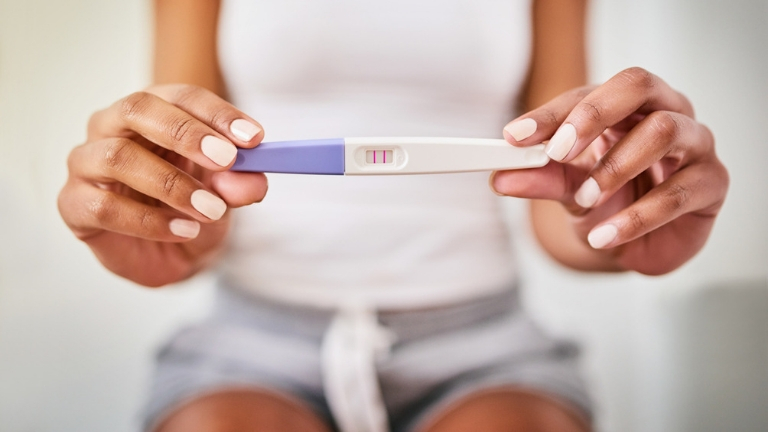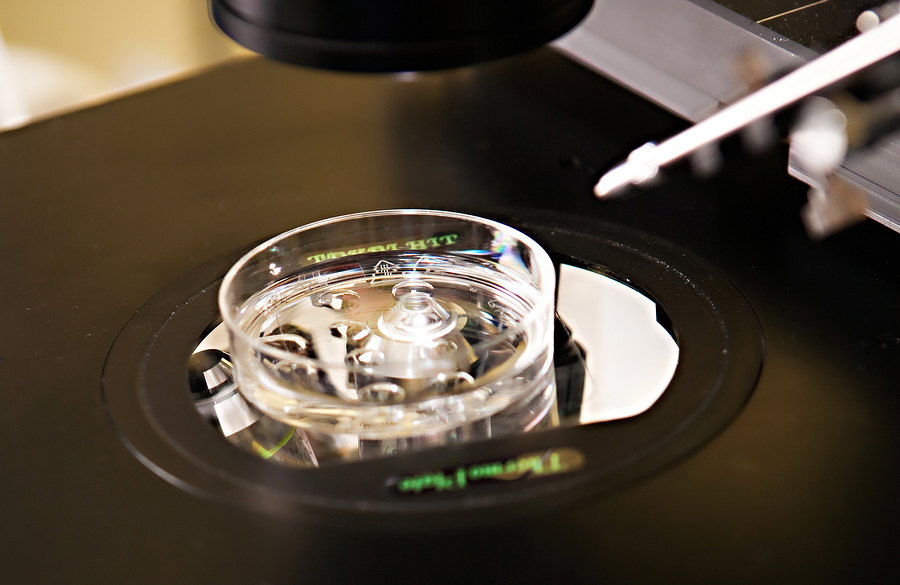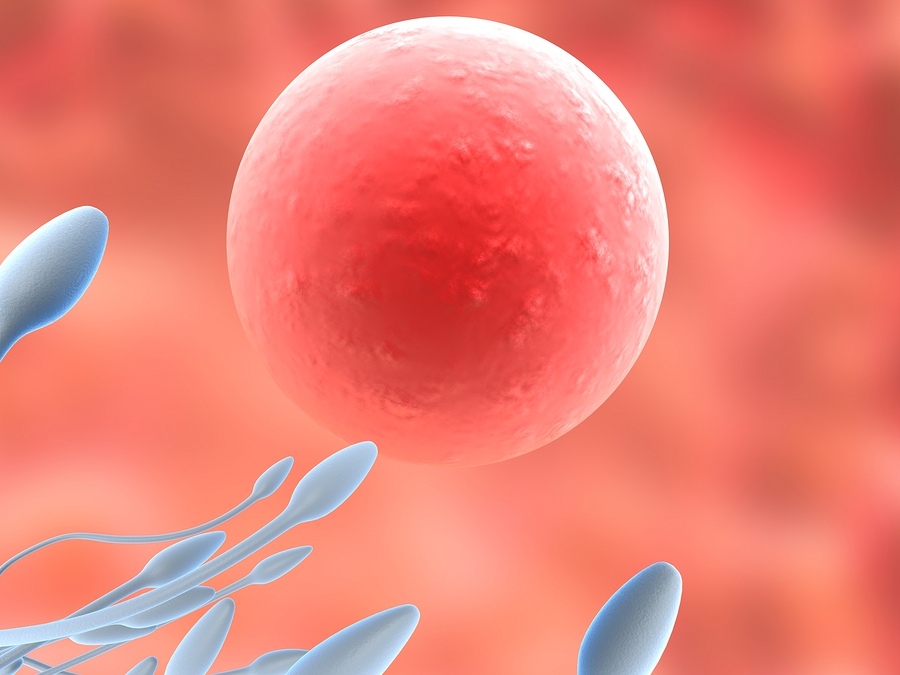Women over the age of 34 are being denied IVF. So how do you know whether it’s better to try IVF, natural methods or both? Dr Xiao-Ping Zhai is a fertility doctor and natural medicine practitioner gives us the answer
The Victoria Derbyshire programme has today found that women over the age of 34 are being refused IVF treatment on the NHS in 12 areas of England.
IVF should be offered to women until the age 42. However, new figures show that around 80% of areas are failing to do this.
One 38-year-old woman, told BBC’s Victoria Derbyshire programme she was considering moving to a different area, after been told she was too old to qualify for the procedure in Southampton.
Health watchdog NICE recommend that women under 40 should be offered three full cycles of IVF, with those between 40 and 42 one full cycle.
Having a baby should be the most natural thing in the world but for many people it’s not always the simplest. Sometimes, when you decide you are ready to start a family, you discover that your wishes don’t go according to plan.
This can become a very stressful time. Thankfully, there is advice out there to help women conceive – but that can mean it often feels like there is a minefield of fertility information for couples to navigate.
So what are your options?
Fertility MOT
First off, women and men should have a fertility MOT as soon as possible to help you understand where you stand. For women, it is important to check your ovarian reserve and your fallopian tubal patency, as well as having thyroid function tests and a pelvic ultrasound scan. For men, a semen analysis would be sensible.
A fertility MOT is particularly important if you have reached your mid 30s and if you are aware of gynaecological problems such as irregular, painful periods or unusually heavy or light menstrual bleeding.
Your fertility MOT can help to show you what may be wrong and where you need help. But you then need to decide what help is right for you.
There is an ongoing debate as to whether assisted fertility treatment should be the first resort; or whether relaxation, nutrition, supplements, exercise and a healthy lifestyle can improve the chances of pregnancy naturally.
In all instances, the key to a successful pregnancy is reproductive health: a healthy egg and a healthy sperm merge to become a healthy embryo. For implantation to take place, a healthy blood supply is needed within the woman’s reproductive system, especially to the uterus (womb). This is the case whether conception occurs naturally or with the help of assisted fertility treatment.
IVF and other assisted fertility treatments
Assisted conception is a magnificent tool for overcoming many infertility conditions. Advancements made over the years have transformed the chances of a woman conceiving. There are quite a number of options including Intra-Uterine Insemination (IUI), In-Vitro Fertilization (IVF) or Intra-Cytoplasmic Sperm Injection (ICSI).
Techniques like IVF can help women get around mechanical problems such as blocked fallopian tubes, which can also be overcome by surgery.
But these options might not be for everyone. IVF programmes can be invasive and emotionally painful for couples, as well as expensive. Success rates are also low for many women, especially as they get beyond their mid-30s.
It is important to understand that no assisted fertility treatment can improve the ovarian function and the quality of the egg or sperm; medical doctors can only select the healthiest from what the man and woman are able to produce. Natural methods may help these issues.
What if your assisted fertility treatment has failed?
You might have already chosen assisted fertility treatment and still failed to conceive. But that doesn’t mean your options have run out. There is still plenty to consider about why your IVF may have failed:
- Your egg quality may have declined This can effect women who are both in their advancing reproductive ages as well as younger women who may have problems due to constitutional and other health issues which can cause the ovaries to malfunction. It is important that you should sit back and see how to improve your general wellbeing and health condition. You need to help your reproductive system function better again.
- General health Your ovarian malfunction could be affected due to general health issues. This is commonly seen in women who produce a good number of follicles during IVF but the number of mature eggs decline.
- Check sperm fragmentation If you have experienced a good number of follicles but very low fertilisation levels, despite the male partner showing a normal semen analysis, it may be good to check his sperm DNA fragmentation.
Options to help you conceive naturally
Improving the normal function of the reproductive system is absolutely key to ensure that the body is functioning well enough to be able to conceive and maintain a pregnancy. There are benefits to doing this before subjecting the body to assisted fertility treatments and you may wish to find ways to conceive naturally.
Traditional Chinese medicine (TCM)
TCM is a powerful alternative to Western medicine and can be used both to help women preparing for assisted fertility treatment and those who are trying to improve their reproductive system to conceive naturally.
It consists of a combination of acupuncture, herbal medicine, lifestyle, nutrition and diet. Acupuncture involves the insertion of fine needles into different parts of the body to stimulate the human body network to balance and function properly. Herbal medicine has powerful healing properties which work on the internal organs and reproductive system. It aims to clear obstruction and helps to restore normal bodily functions. Most importantly, herbs have proved capable of reducing chromosomal abnormality in male sperm and female eggs, so improving sperm and egg quality.
TCM is particularly effective in fertility healthcare because it has few or no side effects, improves the overall health of the patient and produces high clinical pregnancy rates.
This method doesn’t replace the need for medicines and surgery but it can certainly play an important role in restoring the normal functioning of the human body.
Watch what you eat every day
A healthy, balanced diet is essential. Irregular intake of food or an improper amount of certain foods, including too much alcohol, spicy food, coffee, tobacco and cold drinks and foods, will exceed the digestive ability of the human body and can impact your fertility.
Take folic acid
Taking 400mcg of folic acid a day can help prevent birth defects such as spina bifida.
Watch your weight
If you or your partner are either overweight or very underweight (i.e. have a body mass index of more than 29 or less than 19) it is best to ask your GP for help. You can then get advice on the best and safest way to lose or gain weight.
Be active
Regular, moderate exercise of around 30 minutes a day will help to improve and maximise your fitness. It will also boost your endorphin levels, the body’s own ‘happy hormones’.
Drink wisely
The UK government has advised women trying to conceive to avoid alcohol completely. Men should drink no more than two to three units a week.
Don’t smoke
Smoking has been associated with infertility and early menopause in women, as well as sperm problems in men. It may also reduce the success of fertility treatment.
Keep cool
For optimum sperm production, the testicles need to be a couple of degrees cooler than the rest of the body. Men should therefore avoid tight underwear and jeans, cycling and excessively hot baths and saunas. We also recommend a cold shower around the testicles for a few seconds each day.
Think about your job
Occupations that involve sitting for long periods such as long-distance driving or exposure to environmental chemicals may affect sperm quality.
Manage stress
We all have different stress thresholds and there is now growing evidence that being stressed can affect your chances of conceiving. The body interprets the effects of physiological stressors, such as lack of sleep and intensive athletic training, in the same way as psychological stress due to excessive anxiety, bereavement or divorce for example. Stress can sometimes upset your mental health and can disturb your normal bodily functions. So, trying to identify and reduce the things that cause your stress is a good idea.
Check your drugs
Certain prescription drugs can reduce the chances of conception. For example, some long-term medications for diabetes, high blood pressure and rheumatoid arthritis can affect fertility. Make your doctor aware that you are trying for a baby.
And finally…stay positive
Being told you need help to conceive can be very stressful and emotionally difficult. But there are many options available to give you the best possible chance of having a baby, and many of these therapies can be complementary. You need to find what works for you.

Related Healthista Content:
10 supplements to help fertility
6 signs stress is affecting your fertility
12 ways to increase your fertility – the expert’s guide
Is sugar ruining your fertility?
Like this article? Sign up to our newsletter to get more articles like this delivered straight to your inbox.























































